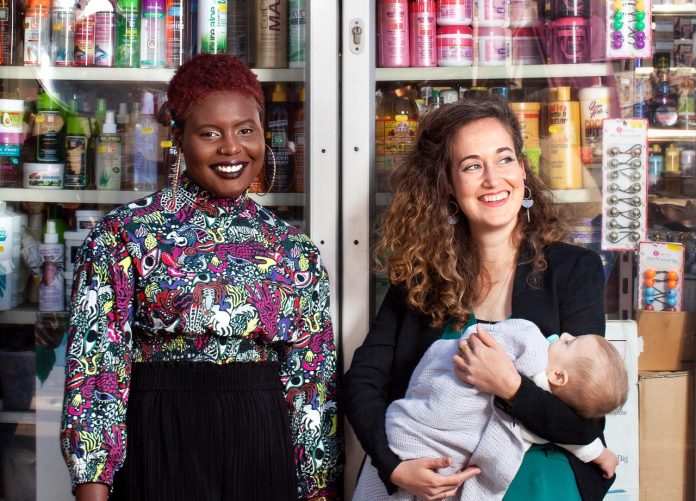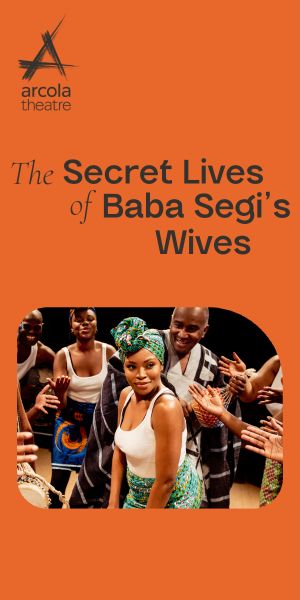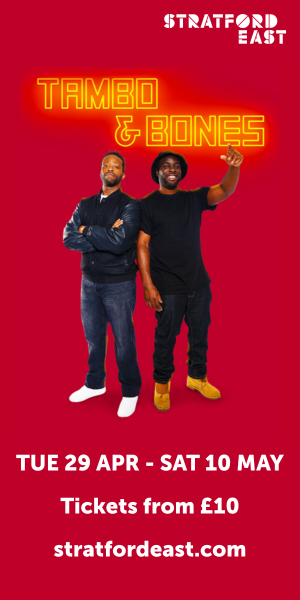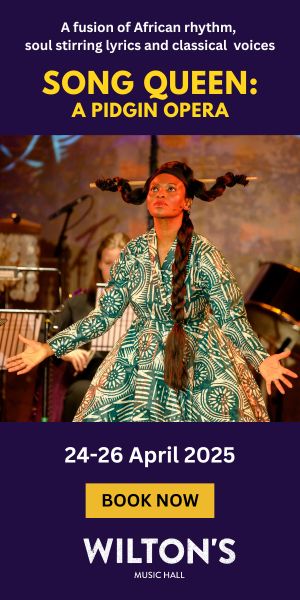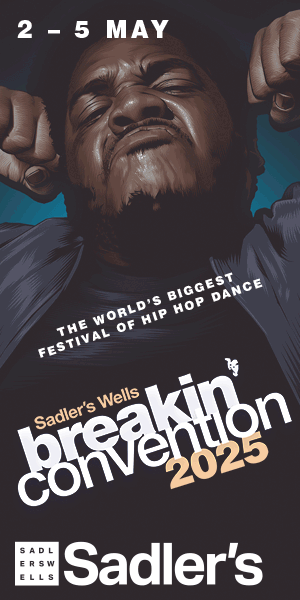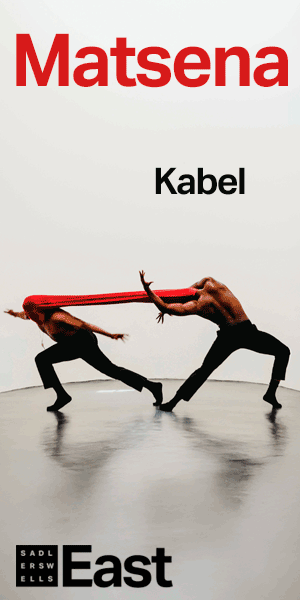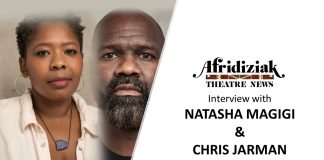Known for groundbreaking and experimental theatre, the Bush Theatre never disappoints in bringing a different kind of performance to the fore. This week, it will bring Babylon – a season of performances over two weeks – bringing together some truly inspiring ideas that push the boundaries of what theatre is.
When I first hear about this Festival, I’m a little confused about exactly what Babylon is. I understand mainly that this is a disruption in all senses, a collaboration of all theatre disciplines. The first week – Babylon Festival – seems unlike theatre at all with a program of podcasts, musical performances and panel discussions. The second week is Babylon Beyond Borders, which although is grounded more in classical theatre, seeks to disrupt time and space by moving theatre beyond one place and live-streaming it internationally across four locations.
What’s more the word “Babylon”, with my Christian-Jamaican-little-bit-of-Rastafarian heritage upbringing, brings to my mind negative connotations – not least because of that ‘Leave Rastaman’ song by roots reggae singer Horace Andy. For me it is a place and system of evil, the modern-day equivalent of brutality and greed. For someone else, however, it may be a good thing, a place, symbolic of the progress to be made when systems are used well.
But that’s the point – Babylon means many things to many people. This is what Tobi, executive producer and Ruthie Osterman, artistic director explained to me when we sat down to chat about their collaboration of two halves. Both have been part of Up Next, a development programme to champion the next generation of visionary BAMER (Black, Asian, Minority Ethnic and Refugee) leaders and artists, in partnership with Artistic Directors of the Future and Battersea Arts Centre.
In the context of Babylon, it was about joy and celebration – particularly in relation to black and brown artists who often feel like they have to create stories of pain and trauma in a theatrical setting. So, I wanted to disrupt that as well. Us bigging ourselves up”
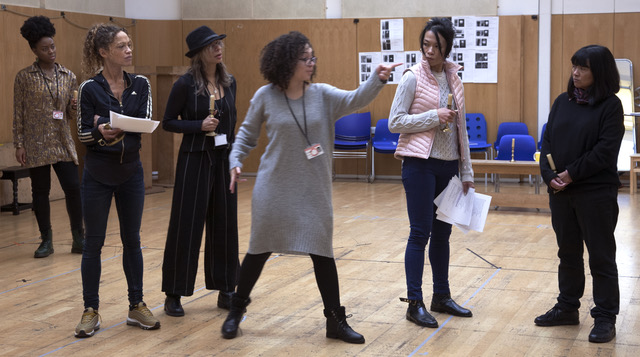
Why Babylon?
Ruthie: Tobi and I were on the Up Next programme, and we were thinking of ways we could take over the Bush Theatre space – and we came up with Babylon because although there’s a core idea, there are also a lot of different responses associated with the word. It’s contemporary exile. It’s a central symbol in the lexicon of diaspora, but it also refers to power, and in some cultures, it refers to the police. We wanted to play with it and decode it.
Tobi: The word has different meanings for both of us – and we liked that there wasn’t one definition between us. We have similarities but we are different people. As Ruthie says, we spent a lot of time thinking about this, and it didn’t feel right to try and speak from the same place. With Babylon it was something we could decode and explore.
Sounds like the season was always going to be two sides of the same coin…
T: We always had this idea of what the journey from local to international would look like. Logistically it felt right to have a concentrated amount of time on each of our forms – that still connected one to the other. Very local London-centric feel in the first week that widens out at the next stage.
Almost like a radiation…a ripple effect?
T: Yeah, I thought a lot about this at the beginning, how wide we would go. In the context we were working in, when we started in 2017 – like, what is the world going to look like in 2019. It felt so far away. To really respond to the time I’m living in, it has to be London-centric. It has to go with the changes I was living in and seeing and encounter every day.
Why did you concentrate on the specific areas of interest for the two parts of the season?
T: For me I was always interested in the role of a publicly-funded theatre building as a public space, in how to disrupt and dismantle what the building can do, and can house. So, I was already clear that I didn’t want to do something that already naturally would exist in the theatre. Bush was a new writing space, so I thought, how disruptive is it that we produce a play in the space? Not at all. I also produce over lots of different artforms anyway, so it made sense to use a festival format. In the context of Babylon, it was about joy and celebration – particularly in relation to black and brown artists who often feel like they have to create stories of pain and trauma in a theatrical setting. So, I wanted to disrupt that as well. Us bigging ourselves up.
S: For Babylon Beyond Borders, we concentrated on contemporary exile. Ideas like home, migration, languages. So, we took as an inspiration from the biblical texts about the Tower of Babel and the splitting of languages. We see London as a modern Babylon. What I wanted to do was to build into cultural dialogues, which is my main interest as an artist.
I feel we are a privileged generation because at the touch of a button we can communicate with other people around the world”
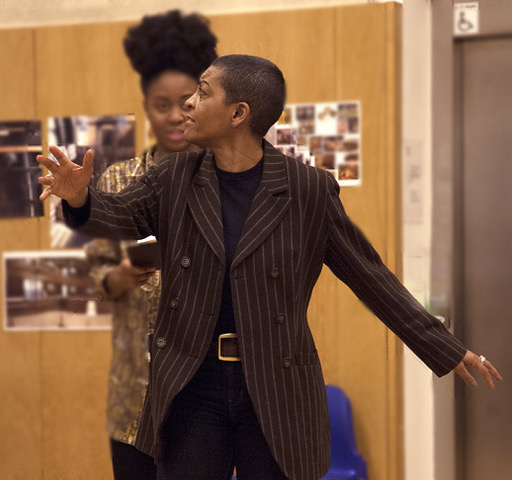
How did you curate the first week of events?
T: Some of them are artists that I’ve respected or been a fan of for a while. Like the Receipts Podcast – I thought I would LOVE to get them. I thought it was a pipe dream, but they’re involved. It was a mixture of different people I had huge admiration for. I didn’t have a formal relationship with any of them, for example, N-Erd Council, but they are talking about a whole range of things that aren’t in my immediate interest. They will bring something to the festival because of that. I love Gal-dem, and I’ve given them freedom to do what they want. They’re doing a panel on astrology and queer people of colour. I love that there’s a space for all these different narratives to do with Babylon.
What was your inspiration behind the performance concept for Babylon Beyond Borders?
R: I was inspired by the Arab Springs when suddenly city squares came to life one after the other, and you could see everything through social media – and it was as though all these countries came to life simultaneously. I had this idea in mind, even though I knew that in reality events did happen one after the other, of different countries influencing each other all at the same time. I thought, how close the gaps between borders and countries while celebrating the fact that we can merge time and do something together. Even the smallest action, if done together, is an act of solidarity, or creativity, or whatever you want to explore. I was interested in this kind of experiment, which we are live-streaming at the Bush Theatre in collaboration with Harlem Stage in NY, Paqueno Ato in Sao Paulo and Market Theatre Lab in Johannesburg. In the lead up, we developed workshops with each lead artist coming together. Each artist then went back to their country to bring their local community on stage. I worked with 11 women ranging from 22 to 71, from diverse backgrounds in Shepherds Bush, through an open call. It’s allowed for the exploration of the possibilities of these encounters through art.
Have you done anything like this before?
R: Sort of. I’m originally from Israel, and I did a collaboration between Israel and Poland. There was tension around the second world war and the Holocaust, so the countries in 2010 celebrated their relationship and I had the opportunity to collaborate with a Polish director to create a performance. But this was only with one country, and not live streamed. Since I finished my Masters I’ve been exploring intermediality, combining images and film and media within theatre. I am always interested in challenging the identity of the auteur.
T: I try to disrupt in anything I work in on some scale. Something about the space or building changing – that’s usually how I work. I do that with myself a lot – I change my hair a lot for example. I guess I see spaces and have always seen theatre buildings as architecture rather than a designated space. I’d look at a space or building and think it would be cool to do something with the space because, say it’s well lit, or it’s an underground cave. I look at it and think I think how do I bring people into a space that has a history of exclusion, for example.
Has creating a live-stream been a challenge?
R: I feel we are a privileged generation because at the touch of a button we can communicate with other people around the world. I think about my parents and grandparents and when they became adults, if something bad happened somewhere, what could they do to help? But now, we have this possibility; if something bad happens in Syria, you can do so much you can do through social media. We have this power that we must acknowledge and see the role we can play as an artist. It’s a challenge for me as I want to explore what I can do with live stream – not like what you would do in the cinema, but a deeper level.
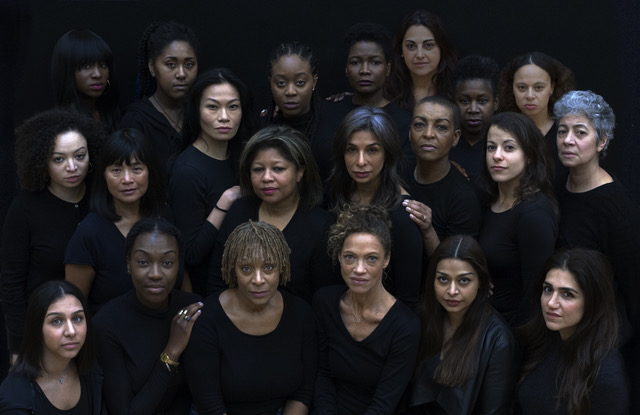
What’s next for you?
T: I do have practical things happening at the moment, I’m producing a show called J’ouvert which is about Notting Hill Carnival and women, and women’s bodies. I’m working towards that in the summer. Other than that I’m going with the flow. As a facilitator rather than an artist it makes sense. After college I did an apprenticeship at the BAC, which informed I lot of how I work as it’s a very experimental building. And because I’ve learned my craft through this, poetry and some more traditional producing roles, it’s made me gravitate towards different creative production.
How will you use your learnings from Babylon?
R: I’ve learned so much. Culture. You see the differences between say my personal story and the other people in my local community, for example black British second generation who doesn’t speak the language of her mother; immigrant from Poland with an issue with your home. Brexit as an issue; the nuance of you’re of Pakistani heritage but your father voted to leave. Many subcultures to learn about and being immersed in locally. Also, to be an artistic director is a huge challenge. You spend a lot of hours in the office, rather than on the street or in the rehearsal space, where I like to be. You’re an operational, logistical, political person not just an artist with vision. Personally, it’s made me really question my direction. If and how I can combine artistic direction with being an artist.
T: I’m not sure I believe in fate, or that everything happens for a reason… I do believe it’s about the learning we do when things happen, those learnings are what informs our next step. You can only really do that in retrospect. I take the learning of what’s happened before and apply to what I’m doing now. Definitely Babylon will inform how I look at and do things in the future. Regardless, elevating the voices of black and brown people will feed into a lot of the work I do. It’s not always about producing the work of black and brown artists; we should exist in all places, so I will put us in any space.
What one thing or feeling would you want people to leave BBB with?
R: A sense of possibility. Especially with everything that’s going on right now, closing our borders, Brazil, we’re going through a sort of nationalism. What is the possibility of having this dialogue with other cultures and what can we do with these encounters.
T: Ownership over the building. Like ‘this is my space’, even if they’ve never been in that space before. I want them to walk in and know that this is for them.






















